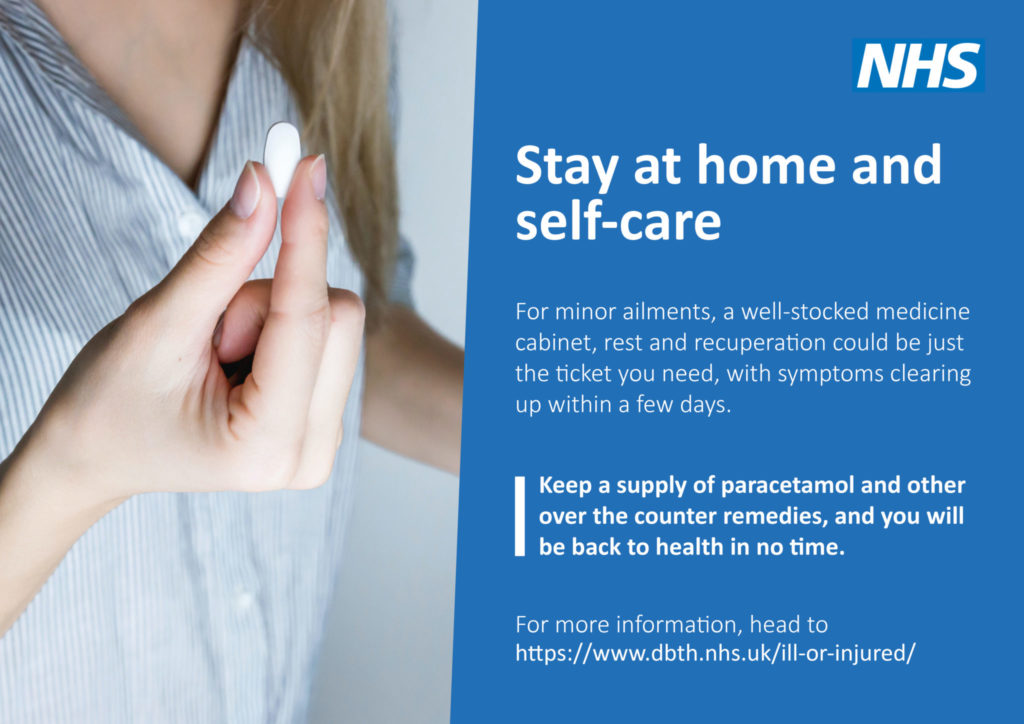A range of common illnesses and complaints such as coughs, colds, sore throats, upset stomachs and aches and pains can be treated with a well-stocked medicine cabinet and plenty of rest.
Stock up on self care essentials:
- Anti-diarrhoea tablets: Diarrhoea is caused by a range of things, such as food poisoning or a stomach virus, and can happen without warning. Anti-diarrhoeal remedies can quickly control the symptoms of diarrhoea. Although they don’t deal with the underlying cause. Don’t give anti-diarrhoeals to children under 12 because they may have undesirable side effects. Speak to your GP or pharmacist for advice about a child with these symptoms.
- Antihistamines: Useful for dealing with allergies and insect bites. They’re also helpful if you have hay fever. Antihistamines can come in the form of creams that you apply to the skin (topical antihistamine) or tablets that you swallow (oral antihistamine). Creams soothe insect stings and bites and rashes and itching from stinging nettles. Tablets and syrups help to control rashes, hay fever symptoms and calm minor allergic reactions to food. They can also help to calm itchiness during chickenpox. Some antihistamines may cause drowsiness. Ask your pharmacist as they may have antihistamines that don’t cause drowsiness.
- First aid: Essential items such as antiseptic cream or wipes, bandages, eyewash solution, medical tape, plasters, sterile dressings, a thermometer and tweezer.
- Indigestion treatment: If you have an upset stomach, heartburn or trapped wind, a simple antacid will reduce stomach acidity and bring relief. Antacids come as chewable tablets, or tablets that dissolve in water, or in liquid form.
- Oral rehydration salts: Fever, diarrhoea and vomiting make us lose water and essential minerals and can lead to dehydration. If you have these symptoms and can’t continue your normal diet, oral rehydration salts can help to restore your body’s natural balance of minerals and fluid, and relieve discomfort and tiredness. But they don’t fight the underlying cause of your illness, such as a virus or bacteria. Rehydration salts, available at your local pharmacy, are an easy way to take in minerals and fluid, and can help with your recovery.
- Pain relief: Painkillers such as aspirin, paracetamol and ibuprofen are highly effective at relieving most minor aches and pains, such as headaches and menstrual pain. Aspirin must not be given to children under 16. These medicines also help with some minor ailments by reducing aches and pains and high temperatures. These medicines also help to reduce the inflammation in arthritis and sprains.
- Sunscreen: Keep a lotion of at least factor 15. Even brief exposure to the sun can cause sunburn and increase your risk of skin cancer. Ensure that your sunscreen provides UVA protection. You can protect yourself further against the sun by wearing a hat and sunglasses, and by avoiding the sun during the hottest part of the day, between 11am and 3pm.
Diarrhoea and vomiting:
If you’re suffering from diarrhoea and vomiting, please do not book an appointment or visit a hospital as the virus may be contagious. Treat yourself at home with an essential kit while the virus runs its course.
If you’re still not feeling well after a few days or if symptoms worsen, contact NHS 111. Visit nhs.uk for advice on treating norovirus.

Content out of date? Information wrong or not clear enough? Report this page.
